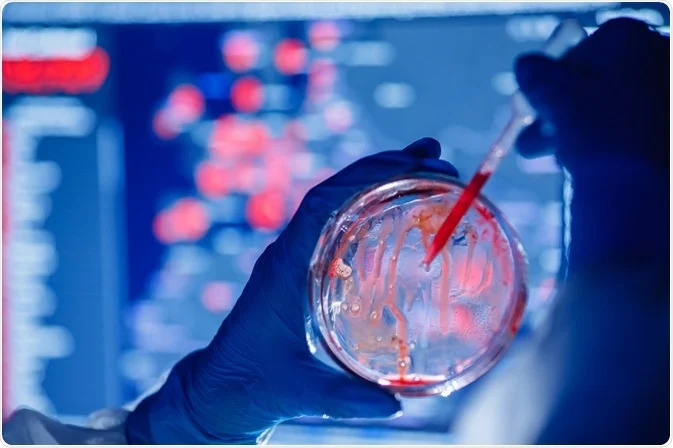
Who should have a full set of biochemical tests?
As we all know, biochemical tests are one of the common items for both general physical examinations and hospitalization. But what is biochemical test? Who should have biochemical test? What are the items included in the biochemical test? What should we pay attention to before doing it? Today, we will give you a clear explanation in one article!
What is a biochemical test?
Biochemical tests (clinical chemistry) are performed by detecting changes in the quantity and quality of chemical substances in human blood, urine, cerebrospinal fluid and other samples to provide clinicians with information for disease diagnosis, condition monitoring, efficacy observation, prognosis determination and health evaluation. Ultimately, the test will determine whether the subject has an underlying disease or exclude certain diseases.
Who should have a full set of biochemical tests?
Generally speaking, it is not possible to clarify a disease based on one value alone. A combination of several different values is needed to make a determination. This will help the doctor to get a full picture of the patient's condition. This will help the doctor to identify changes in the patient's condition, evaluate the treatment and adjust the treatment plan in a timely manner.
A complete set of biochemical tests is required in the following cases.
- First-time patients (especially those with suspected cardiovascular disease, hypertension, hyperlipemia, hyperglycemia)
- Inpatients (especially first-time hospitalization and surgery patients)
- People with unclear disease
- People suffering from major diseases
The following basic biochemical tests are necessary for a general physical examination.
Liver function: aspartate amino transaminase, alanine aminotransferase, total bilirubin
Kidney function: blood urea nitrogen, blood creatinine, uric acid
Lipids: total cholesterol, triglycerides, LDL cholesterol, HDL cholesterol
Blood glucose: fasting blood glucose
What do I need to prepare before testing?
01. Fasting
Eating, including drinking, can affect liver and kidney function, blood lipid glucose, etc. Therefore, fasting for 8 hours and water fasting for 6 hours before the test is required. It is recommended not to eat or drink after 10:00 pm the night before the test.
02. Light diet and no alcohol consumption
To ensure the accuracy of the biochemical test, it is best to eat a light diet the night before the test. Do not eat spicy and stimulating foods, high in oil and fat, and do not drink liquids containing alcohol.
03. Do not stay up late
Staying up late has a greater impact on the results of biochemical tests. Therefore, you should adjust your work and rest in the days before the test, go to bed early and wake up early, and make sure you go to bed before 11:00 p.m.
04. Don't take medicine indiscriminately
If you are taking medication, consult your doctor first if the medication has any effect on the biochemical test. Do you need to stop the medication or change the time of the test? If you are not taking any medication, do not take any medication on your own three days before the
What are the biochemical tests?
01 Liver function
Liver function test is mainly to screen for viral hepatitis (such as hepatitis A, hepatitis B, etc.), toxic hepatitis (such as liver damage caused by drugs), acute/chronic hepatitis, fatty liver, cirrhosis, degree of liver cell damage, liver cancer, biliary tract obstruction and other liver and biliary diseases based on the change of the test value.
Key test items: aspartate aminotransferase, alanine aminotransferase, total bilirubin, albumin, A/G
02 Kidney function
Renal function tests can detect renal insufficiency and organic renal impairment (such as primary glomerulonephritis) as early as possible through changes in values.
Key test items: blood creatinine, urea nitrogen, uric acid
03 Blood sugar and lipids
Blood lipid refers to the concentration of lipid in the blood, elevated blood lipid will be lipid metabolism disorder, easily lead to atherosclerosis; blood glucose refers to the concentration of glucose in the blood, blood glucose test mainly refers to the glucose in the blood, elevated blood glucose easily lead to diabetes.
Key test items: total cholesterol, triglycerides, LDL cholesterol, HDL cholesterol
04 Cardiac enzymes
The rhythmic beat is caused by the contraction of the heart muscle, which is rich in many enzymes (i.e. cardiac enzymes), and when there is a problem with the heart muscle, such as myocardial infarction, a large amount of these enzymes will be released into the blood. Therefore, myocardial enzyme tests are commonly used in the diagnosis of myocardial infarction and are commonly performed in patients with coronary artery disease.
05 Electrolytes
The clinical significance of electrolyte-related values is complicated, as hemolysis, infection, liver and kidney diseases, disorders of acid-base balance, tumors, etc. may cause changes in values.
Key items: potassium, sodium, chloride, calcium
06 Pancreas
The pancreas is the second largest gland in the body after the liver and can secrete pancreatic juice and insulin, which contains many enzymes and plays an important role in the digestion of food. If some diseases cause these enzymes to enter the blood circulation, resulting in elevated enzymes in the blood or urine, it is important to detect these enzymes for the diagnosis of pancreatic diseases.
Key tests: amylase, lipase
A complete biochemical test is a comprehensive test of the human body, which helps to understand the condition of the body, detect potential diseases, prevent sudden illnesses, and treat them in a timely manner.
At present, Seamaty biochemical diagnostic reagents have 33 items and 24 reagent disc combinations. It can not only test and screen liver and gallbladder, kidney, glycolipid, heart muscle, pancreas and other more complete items at the same time. It provides a full range of coverage of the patient organism. It also has the characteristics of accuracy, speed and convenience, which is popular among doctors.

Comments 0